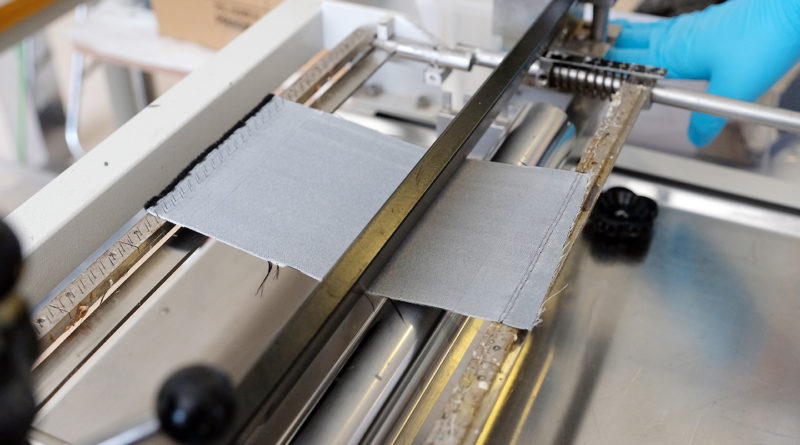Microplastics from synthetic textiles in the Environment: Knowledge, Mitigation and Policy
The OECD is organising an event in its headquarters in Paris on February the 11th about microplastics from synthetic textiles in the environment. Dr. Paula Felix, senior researcher at Leitat and textile surface expert, will explain how surface technologies can prevent the release of textile microfibers.
Microplastics are everywhere and they are likely to persist across all stages of the water and wastewater treatment cycles. For instance, the microfibres generated during the use phase of textiles are estimated to be one of the largest contributors to microplastics pollution in terms of volumes of microplastics released to the oceans. Thus, policymakers need tools and instruments that contribute to effective management of microfibers, such as to find cost-effective solutions across the textiles chain from fabric design and production, through to disposal and wastewater treatment.
The OECD, with the support of the Government of Sweden, is organising on the 11th of February a workshop on Microplastics from synthetic textiles in the Environment: Knowledge, Mitigation and Policy; which aim is to ultimately deliver preliminary policy recommendations to mitigate and manage synthetic microfibers in the environment. The workshop is designed to be interactive and each session starts with a series of short presentations, followed by a moderated discussion on the themes raised.
During the first session starting at 10:45, Dr. Paula Felix, senior researcher at Leitat will share her research results about how to prevent microfibre leakage: the role of product design and manufacturing. Concretely, Dr. Felix will present the work done during two major research projects being MERMAIDS and FIBERCLEAN. An open discussion with the other participants and the public will follow.
At the end, the participants should have a holistic view and an improved understanding of the microfiber problem and its negative impacts on the freshwater and ocean environments. They will also be able to identify potential areas/topics for research on microplastic pollution and standardisation in microplastic characterisation and analysis and they will be able to take part in discussions about potential solutions to the microfiber problem. Moreover, the outcomes of the workshop will inform an OECD report on policy responses to mitigate secondary microplastics in the freshwater and marine environments, which will feature case studies and conclude with policy recommendations.Â
More information here.

